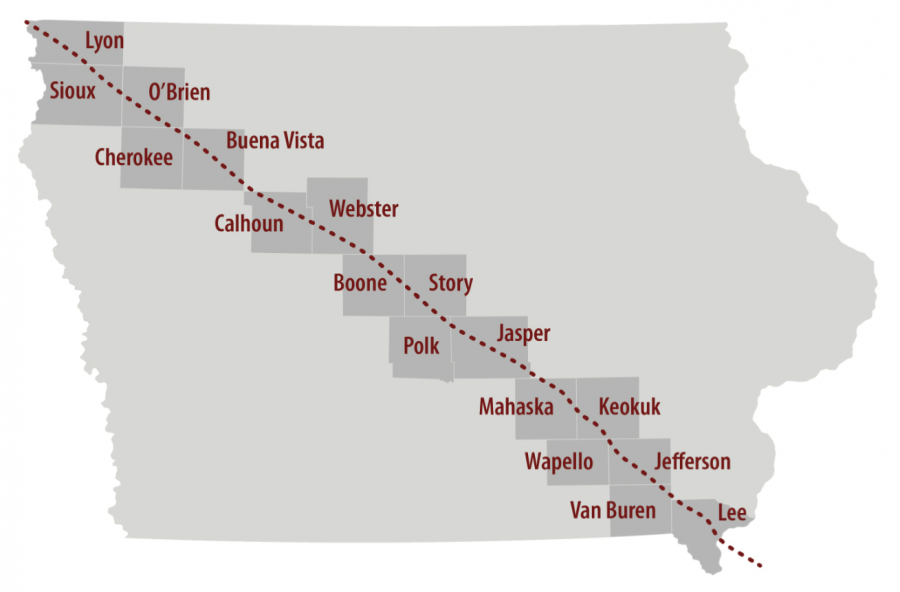The Iowa Utilities Board approved a crude oil pipeline on Thursday that would cut across several of the state’s counties. The project has become a stage for arguments about eminent domain and climate change as well as expanding the country’s energy sources.
The approval is not the final checkoff for the project, but it marks the end to part of the process that began in the summer of 2014. The proposed line would run 1,168 miles and would run from the Bakken Oil Fields in North Dakota through South Dakota and Iowa before ending at a terminal in Illinois.
Of the more than 1,000-mile pipeline, only about 300 miles would be in Iowa.
The pipeline, which is being taken on by the Dallas-based Energy Transfer Partners, previously said 5,000 to 8,000 new jobs could be created with the pipeline.
The clash between expanding U.S.-based energy with concerns over climate change has underlined what has become a contentious debate. This is in addition to concerns about eminent domain, which would be required in order for the project to be completed since some landowners have opposed the project.
While the board approved the proposal on a 3-0 vote, it explicitly states terms Dakota Access, the Energy Transfer Partners Subsidiary that would build the pipeline, must meet before a permit is issued and construction can begin.
Those requirements include having a general liability policy of at least $25 million, scaling down its eminent-domain requests, and filing quarterly status reports with the board among other requirements.
The pipeline has been pushed by North Dakota Gov. Jack Dalrymple, whose state produces the most oil in the United States behind Texas.
Construction on the pipeline will begins in the spring and has an estimated cost of $3.78 billion.
According to a Des Moines Register/Mediacom Iowa Poll, 47 percent of Iowans said they support the pipeline, while 40 percent said they oppose it. Thirteen percent say they are unsure whether they support the pipeline.
With 804 Iowan adults surveyed, there is a margin of error of plus or minus 3.5 percentage points.
Johnson County Supervisor Mike Carberry expressed his disapproval of the pipeline on Thursday on Twitter after the measure was passed.



